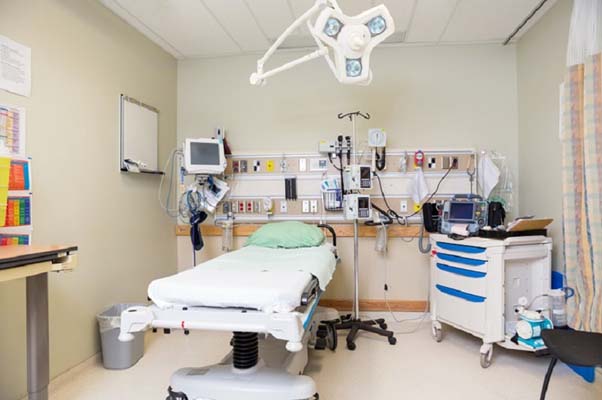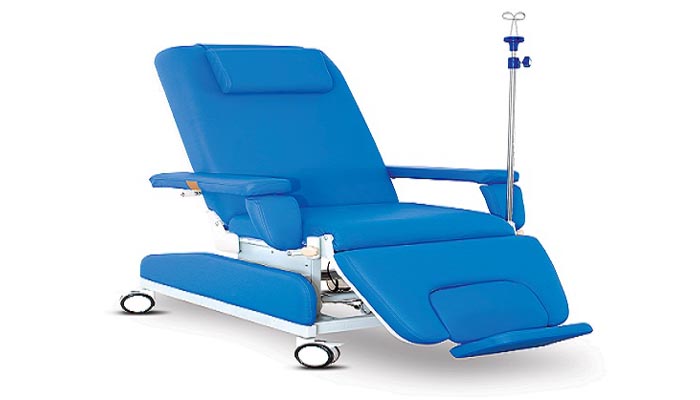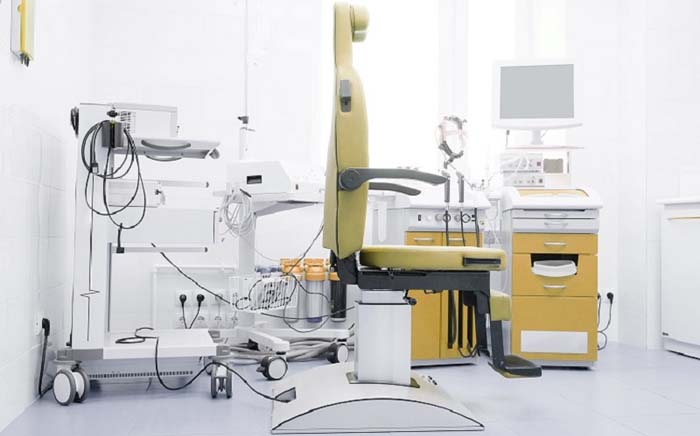Discover the real differences between Stethoscopes for Nurses vs Stethoscopes for Doctors. Learn which features matter most, top brand comparisons, and expert tips for choosing the right one.
Stethoscopes for Nurses vs Stethoscopes for Doctors: What’s the Real Difference?
Ever wonder if nurses and doctors really need different stethoscopes—or if it’s just a marketing gimmick? If you’re shopping for your first stethoscope, upgrading an old one, or just curious about what makes a stethoscope perfect for your role, you’re in the right place.
Let’s break down the differences in a way that actually makes sense—no complicated jargon, just real advice you can use whether you’re a nursing student, a seasoned clinician, or buying a stethoscope as a gift.
Why Stethoscopes Matter More Than You Think
A stethoscope isn’t just a tool—it’s like an extension of your clinical instincts. From checking blood pressure to identifying life-threatening murmurs, it helps you listen in on what the body is trying to say.
No matter your title—nurse, doctor, or student—a good stethoscope can make your job easier, faster, and more effective. That’s why picking the right one actually matters.
Why Compare Nurse vs Doctor Stethoscopes?
Now, here’s the thing—most stethoscopes look the same at first glance. But there are subtle differences based on how they’re used in everyday care.
Doctors may need more advanced acoustic detail for diagnosing heart and lung conditions. Nurses, on the other hand, need something reliable, comfortable, and efficient for routine assessments.
This guide is here to help you make the best choice based on your role, experience level, and clinical needs.
Who Should Read This?
- Nursing students or med students picking their first stethoscope
- Practicing nurses or doctors looking to upgrade
- Anyone buying a stethoscope as a gift for a healthcare professional
If that’s you—keep reading!
Nurses vs Doctors: What They Actually Do With Their Stethoscopes
For Nurses
Nurses typically use stethoscopes for:
- Monitoring vital signs
- Performing head-to-toe assessments
- Checking bowel or lung sounds
- Taking manual blood pressures
These are frequent tasks that require quick and accurate assessments, often done on multiple patients during a shift.
For Doctors
Doctors use their stethoscopes for:
- Diagnosing complex cardiac or pulmonary issues
- Listening for subtle abnormalities
- Performing focused physical exams
They need stethoscopes with high acoustic sensitivity to hear low-frequency sounds and differentiate minor changes in tone.
How Responsibilities Influence Stethoscope Needs
Nurses need:
- Lightweight, durable tools they can wear all shift
- Versatility for seeing different patients
- Simpler designs that don’t get in the way
Doctors need:
- Greater precision
- Specialized heads for cardiac or pediatric care
- Advanced features for deeper diagnosis
Key Differences Between Nurse and Doctor Stethoscopes
| Feature | Nurse Stethoscopes | Doctor Stethoscopes |
|---|---|---|
| Sound Clarity | Good for general use | Excellent for detailed auscultation |
| Weight & Comfort | Lightweight for all-day wear | Slightly heavier, but high-tech |
| Tubing Type | Single lumen usually | Dual lumen for better sound quality |
| Diaphragm Features | Basic or tunable | Tunable, pressure-sensitive |
| Durability | Durable, low-maintenance | Premium materials, longer lifespan |
| Price Range | Budget to mid-tier | Mid-tier to premium |

Best Stethoscope Features for Nurses
If you’re a nurse or buying for one, here’s what to look for:
- Lightweight design: You’ll wear it around your neck or in your pocket all day
- Comfortable earpieces: For multiple checks throughout your shift
- Reliable sound quality: Clear enough to hear normal vs abnormal sounds
- Budget-friendly: You don’t need cardiology-grade tech to check vitals
- Durability: Able to handle frequent cleaning and handling
Top picks include:
Best Stethoscope Features for Doctors
Doctors—mostly in cardiology or emergency medicine—need a stethoscope with advanced tech.
Key features to look for:
- Advanced acoustics: Detect subtle heart murmurs or lung crackles
- Tunable diaphragm: Listen to high and low frequencies by adjusting pressure
- Dual-lumen tubing: Reduces noise interference for clearer sound
- Interchangeable heads: Pediatric, adult, and infant
- Premium materials: Stainless steel, latex-free tubing, and anti-chill rims
Recommended models:
🩺 Best Stethoscopes for Nurses vs Stethoscopes for Doctors
Choosing the right stethoscope can be hard with so many choices. We picked the Top 6 stethoscopes for their real-world performance, comfort, price, and user reviews. This list is for nurses, doctors, and students.
Let’s look at each one’s features, pros, cons, price, and who they’re best for.
✅ Quick Comparison Table
| Model | Best For | Price Range | Ideal For | Weight | Acoustic Performance |
|---|---|---|---|---|---|
| Littmann Classic III | Best Overall | $$$ | Nurses, Students | Light | High |
| MDF MD One | Budget Pick | $ | Nursing Students, EMTs | Light | Moderate |
| ADC Adscope 615 | Most Durable | $$ | General Nurses, Clinics | Medium | Good |
| Littmann Cardiology IV | Best for Advanced Use | $$$$ | Doctors, Specialists | Heavier | Excellent |
| Welch Allyn Harvey Elite | Best for Precision | $$$$ | Cardiologists, Internists | Heavy | Elite-grade |
| MDF ProCardial Titanium | Best for Versatility | $$$ | Doctors, Multi-patient use | Medium | Excellent |
🥇 1. Littmann Classic III – Best Overall Stethoscope
Features:
- Dual head design (adult and pediatric sides)
- Tunable diaphragm for both sides
- Next-gen tubing resists stains and wear
- Lightweight and flexible
Pros:
- Superb acoustic quality for general use
- Comfortable earpieces for long shifts
- Works for both nurses and doctors
- Great color options
Cons:
- May not capture super faint sounds like cardiology models
Price Range: $$$
Ideal For: Nurses, med students, family doctors, and general practitioners
💸 2. MDF MD One – Best Budget Pick
Features:
- Stainless steel construction
- Free parts for life (ear tips, diaphragm)
- Ergonomic and lightweight
Pros:
- Very affordable for students and entry-level professionals
- Lifetime warranty with replacement parts
- Stylish with lots of finishes
Cons:
- Acoustic detail not as strong as Littmann or Welch Allyn
- Not ideal for advanced diagnosis
Price Range: $
Ideal For: Nursing students, EMTs, CNAs
🛡️ 3. ADC Adscope 615 – Most Durable for Daily Use
Features:
- Adsoft Plus silicone ear tips
- Tunable AFD technology for improved sound
- Extra-durable build and snap-on diaphragm
Pros:
- Built to withstand tough, daily use
- Comfortable earpieces for all-day wear
- Budget-friendly with high-quality feel
Cons:
- Slightly bulkier than others
- Not as acoustically detailed as Littmann Cardiology
Price Range: $$
Ideal For: Nurses in high-volume clinics or hospitals
🧠 4. Littmann Cardiology IV – Best for Advanced Clinical Use
Features:
- Dual-lumen tubing eliminates sound interference
- Tunable diaphragm for adult and pediatric use
- Next-gen acoustic technology
Pros:
- Exceptional sound clarity for diagnosing murmurs, rubs, etc.
- Comfortable even with heavy use
- Versatile for multiple specialties
Cons:
- Heavier than Classic III
- Pricier than general-use stethoscopes
Price Range: $$$$
Ideal For: Doctors, specialists, advanced practitioners
🎯 5. Welch Allyn Harvey Elite – Best for Cardiac Precision
Features:
- Triple-bore tubing for better sound
- Brass chest piece for clear sound
- Rotatable binaurals
Pros:
- Top sound quality for heart exams
- Great for cardiologists and internists
- Feels solid and professional
Cons:
- Heavy around the neck
- Limited aesthetic options
Price Range: $$$$
Ideal For: Cardiologists, hospitalists, internal medicine doctors
🧩 6. MDF ProCardial Titanium – Best for Versatility & Multi-patient Use
Features:
- Interchangeable chest pieces (adult, pediatric, infant)
- Titanium build = ultra-light + ultra-strong
- Dual-lumen tubing
Pros:
- Designed for doctors who see diverse patients
- Outstanding sound detail and build
- Lightweight for its category
Cons:
- Pricey if you don’t need all attachments
- Slight learning curve with interchangeable parts
Price Range: $$$
Ideal For: Doctors, pediatricians, NICU professionals
🎉 Final Takeaways
If you want the best stethoscope, the Littmann Classic III is a great choice. It’s affordable, sounds good, and is comfy. But, if you’re a specialist or work in a busy clinic, the Littmann Cardiology IV or Welch Allyn Harvey Elite are worth it.
Looking for something cheap? The MDF MD One is a good choice. It’s affordable and works well.
Brands: Nurses vs Doctors
Some brands are better for nurses, while others are for doctors.
Popular Brands Among Nurses
- MDF Instruments – Affordable, durable, stylish
- ADC (American Diagnostic Corp) – Reliable and budget-friendly
- Littmann Classic line – Balanced in price and performance
Popular Brands Among Doctors
- Littmann Cardiology line – Top-tier acoustics and features
- Welch Allyn – Trusted in hospital systems for diagnostics
- Heine – High-end, specialized diagnostic tools
Choosing the Right Stethoscope for Your Role
Here’s what you should consider when shopping:
- Workplace setting: Hospitals may require higher-end models for accuracy, while clinics may not
- Your specialty: A pediatric nurse needs different features than an ICU doctor
- Experience level: Students don’t always need premium tools—but residents might
- Budget: There’s a good model at every price range
Specific Tips:
- Students: Go with a reliable mid-range model like Littmann Classic III
- New Nurses: Look for comfort and durability—don’t overpay!
- Resident Doctors: Invest in an advanced model you can grow into
Summary Table: Stethoscopes for Nurses vs Doctors
| Feature | Nurses Need | Doctors Need |
|---|---|---|
| Comfort & Weight | High (all-day use) | Medium (accuracy takes priority) |
| Sound Performance | Moderate to good | Excellent |
| Budget | Affordable to mid-range | Mid-range to premium |
| Durability | Important (frequent use) | Critical (long-term investment) |
| Specialization | General use | Specialized exams (cardiology, etc.) |
| Best Brands | Littmann Classic, MDF, ADC | Littmann Cardiology, Welch Allyn |
Final Thoughts: Do You Really Need a Different Stethoscope?
So—do nurses and doctors really need different stethoscopes? Honestly, sometimes yes, sometimes no.
If you’re doing general assessments all day and don’t need deep acoustic sensitivity, a nurse’s stethoscope will work just fine—even for a doctor in training.
But if you’re making high-stakes diagnoses or working in a specialty area, investing in a more advanced model is absolutely worth it.
Here’s how to decide:
- Stick with one stethoscope if your work involves general use, limited diagnoses, or if you’re a student.
- Get a specialty stethoscope if you’re dealing with complex cardiopulmonary cases or in a diagnostic role.
Balance your budget, comfort, and what you actually do at work. In the end, the best stethoscope is the one that helps you hear your patients better.
FAQs
1. Can nurses use a doctor’s stethoscope?
Yes! There’s no rule saying nurses can’t use advanced stethoscopes. But many choose simpler, lightweight models for comfort and practicality.
2. What’s the best stethoscope for a nursing student?
The Littmann Classic III is a great starter model—durable, reliable, and not overly expensive.
3. Is there a stethoscope that works well for both nurses and doctors?
Yes, there is. The MDF ProCardial and Littmann Classic III are great for both.
4. How long does a good stethoscope last?
A good stethoscope can last 5–10 years or more. Just clean it often and store it right.
5. Do pediatric nurses need a different stethoscope?
Yes, they do. They use Littmann Classic II Pediatric or stethoscopes with changeable heads.





